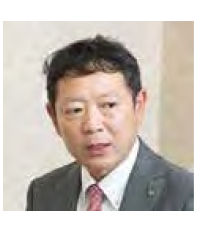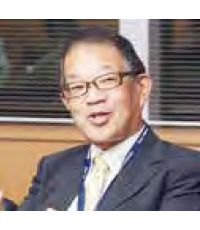Takeuchi:I think the "Yoshida College Concept" is to bring the world to the campus of Kyoto University, but I also have the tradition that "a child who has worked hard at studying, events and club activities will not give up on his or her own career path." I am beginning to think that it is necessary to reconsider the values of school management from the perspective of "Hibiya in the world."
At Harvard Kennedy School, where students were led by SSH and Tokyo Global 10, international students from South Korea, China, and India are overwhelming, with only about 1% of Japanese.Considering that they have broadened their horizons and expanded their connections to the world, returning to their own countries and engaging in work, research, and administration, I feel a strong sense of crisis in Japan's future.Students are students, and while some say that their future goals have become clearer and their motivation for learning has increased through discussions with famous university teachers and students, many of them are aware of their immaturity and raise their grades. The self-evaluation goes down as you go.
However, this will also lead to the next step in learning, so from this year we have set up sister schools in New Zealand and South Korea and started short-term exchange programs.Think about your own learning and increase your motivation in connection with high school students who have different values.I haven't come up with a solution yet, but I would like the students to take on the challenge while taking on the challenge myself.

Akira Takeuchi Principal (Tokyo Metropolitan Hibiya High School)
Message to the roundtable
"Making a big vessel that can be used in the world" -As students challenge Bunbu Nido, even at our school, which aims to foster independence and foster a rich humanity, in recent years it is safer and more stable than the challenge. You can see the students who are oriented towards.
Even when taking university entrance exams, the percentage of students who are willing to take on the challenge, perhaps in line with their parents' intentions, is decreasing.Of course, this may be due to the fact that the value of taking on challenges at the undergraduate level is declining due to the emphasis on graduate schools and the university orientation that is strong in employment after the employment ice age.
However, from the teacher's point of view, postponing the challenge at the age of 18 is not a good idea, considering that it will be pressed somewhere.I'm also worried that it may lead to a trend of "you don't have to work hard".It is often said that the role of high schools and universities as a place to give knowledge is becoming lower due to the spread of the Internet.
However, on the other hand, as "good care" is one of the indicators for students and parents to choose a school, the role is reversed for children who are accustomed to being taught and being given the correct answer. It can be said that it is increasing.In addition, with the background of the nuclear family and the weakening of kinship, schools are expected to have the educational power of a place where various personalities gather.
The same can be said for universities, which are places where young people can grow up, creating human beings through teaching scholarship.In particular, I think that is strongly expected of universities such as Kyoto University, which seek to nurture excellent students through education based on dialogue.Up until now, the reform of the university entrance examination system has been centered on the "High School Connection System Reform Council," but as interest shifts to individual examinations at each university, how each faculty of each university responds. I would like to see if they will do it together with the educational reform.
In addition, regarding the main roundtable discussions that I participated in the past five times, the metropolitan area public school exchange meeting was born, and now the circle has expanded to seven schools, and exchanges between teachers and students as well as principals have begun. It should be noted that it was also an opportunity for the cooperation of public high schools beyond that.

Tokyo Metropolitan Nishi High School Principal President of the National High School Principals Association
Mr. Hisaya Miyamoto

